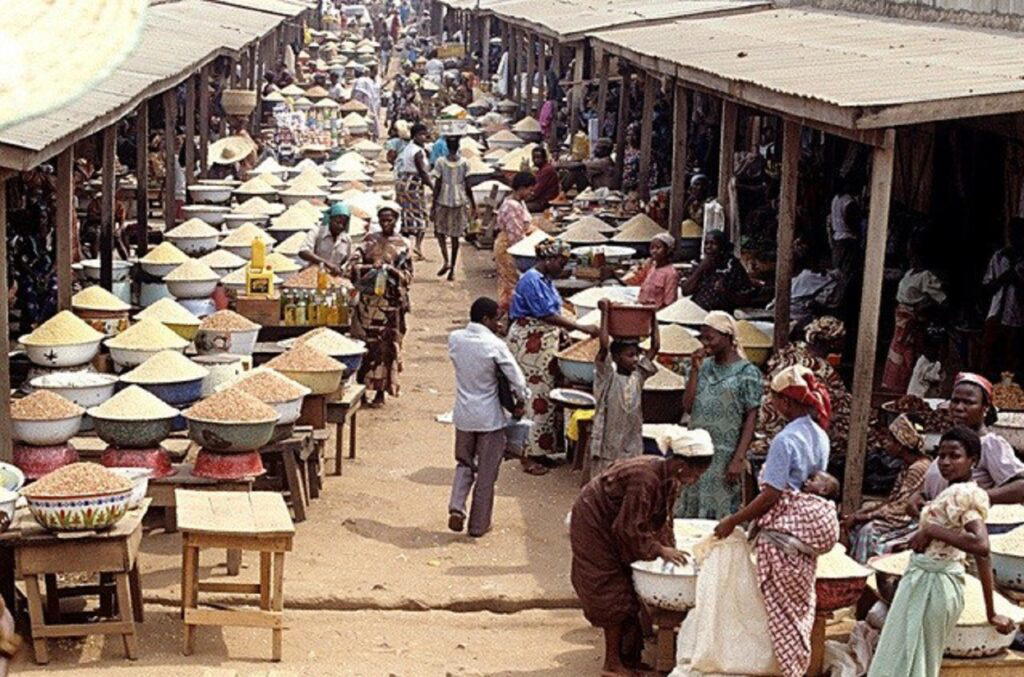


“One cannot think well, love well, sleep well, if one has not dined well.” – Virginia Woolf.
By Daniel IGHAKPE
A recent visit to a typical Nigerian market revealed that the prices of most food items have increased astronomically! Consequently, life has become increasingly difficult for many Nigerians, especially the low-income earners, the unemployed and other vulnerable people.
For example, a market survey showed that a ‘Derica’ (cup) of beans, which previously sold for between N250 and N300, now goes for between N500 and N600 or more. A ‘paint’(bucket) of garri, which sold for around N350, now sells for N1,500. A yam tuber which initially sold for N500 or N600 is now goes for between N1,000 and N1,200. Even small milk sachets, which were sold for N40 or N50, are now being sold for N60 or N70. And the list goes on!
This relentless upward movement of prices is discouraging to many families with limited budget. It also adds to the stresses and frustrations of many people, making life unbearable for them. It is distressing to see that foodstuffs, among other things, cost more by the day, and that taxes and utility bills of all kinds keep increasing. Something drastic needs to be done as hunger is biting hard in the land!
The word most commonly used to describe what has been happening is INFLATION. Inflation is a term used by economists to describe the general and progressive increase in prices, and a fall in the purchasing value of money.
According to recent data released by the National Bureau of Statistics, NBS, Nigeria’s inflation rate stood at 18.12% in April 2021, although it dropped a little to 17.93% in May 2021. The report also showed that the food inflation rate rose to 22.95 per cent in March 2021 compared to 21.79 per cent in February 2021. The composite food index also rose to 22.72 per cent in April 2021 from 15.03 per cent in April 2020.
The details may differ, but the story is much the same in many other countries around the world. The cost of living is rising relentlessly. For many, bread and milk have become a luxury, and three meals a day a rarity. Rice is now usually eaten only on festive occasions because of its high cost. Those who suffer most are the unskilled labourers and poorer people, who are in no position to demand the higher and higher incomes needed to keep up with rising prices. For these people, especially, inflation is a thief, a thief that robs the most in need.
Some people try to alleviate the problem by working longer hours, but others find work difficult or even impossible to obtain because of the high rate of unemployment in the country. They are forced to devote each day to the unending and often fruitless task of searching for food. For them, it is not merely a question of coping with the cost of living, but, rather, a matter of struggling to meet the cost of survival. Particularly hard hit are those on fixed incomes such as pensioners or the unemployed.
Who or what is to blame for this growing inflation? Many people blame government. One basic cause of rising inflation is when the government has been spending more money than it has been making. Government, on its part, may blame the economic policies of other countries. The international economic order has also been strongly criticised. Other possible contributory factors to the problem of inflation in Nigeria include the devaluation of the Naira; worsening insecurity in farming communities; increase in cost of production; government economic policies; the price of fuel; the national debt; reduction in productivity; high taxes; increase in public spending; illiquidity of the foreign exchange market; high/unfavourable exchange rate; rising unemployment, and so on.
In view of all these problems bedevilling our economy, the concerned authorities should endeavour to properly manage the situation before it spins out of control. When the prices of food items and other goods and services increase over a period of time, it affects the entire economy. It impacts the cost of living, the cost of doing business and every other facet of the economy. Inflation is like a balloon. A balloon can be filled with air up to a point, depending on its size and strength. But when too much air is pumped into it, the balloon will always ‘burst.’ That is also true of constant economic inflation; it eventually leads to an economic ‘bust’. From the economic viewpoint alone, authorities agree that throughout history every case of rampant inflation has ended in the destruction of that nation’s money. Time and again this has happened, without exception.
Since it is apparent that the money systems of the world are built on very fragile foundations, would it not be good to have a system that could eliminate economic uncertainties? But is a stable economy and the ending of money problems just a dream? No, it is not. In fact, it is a certainty!
This is what we learn when we consult the inspired Word of God, the Holy Bible. Many of its prophecies have already been fulfilled with unerring accuracy. That gives us confidence that those prophecies dealing with our time will also come to pass without fail. As the Bible shows, God will eventually provide a system of government that will solve permanently all economic difficulties. That government is the one Jesus taught his followers to pray for, the heavenly kingdom of God. —Matthew 6:10.
Because of what is certain to come in the near future, you do well not to place your trust and hope in money or in other material things. It is, instead, to the new order of God’s making that one should look for the solution to all of man’s problems, including the economic ones.
*Ighakpe, a social commentator, wrote from FESTAC Town, Lagos via: danny.ighakpe@gmail.com.
The post The rising cost of food! appeared first on Vanguard News.
0 Commentaires